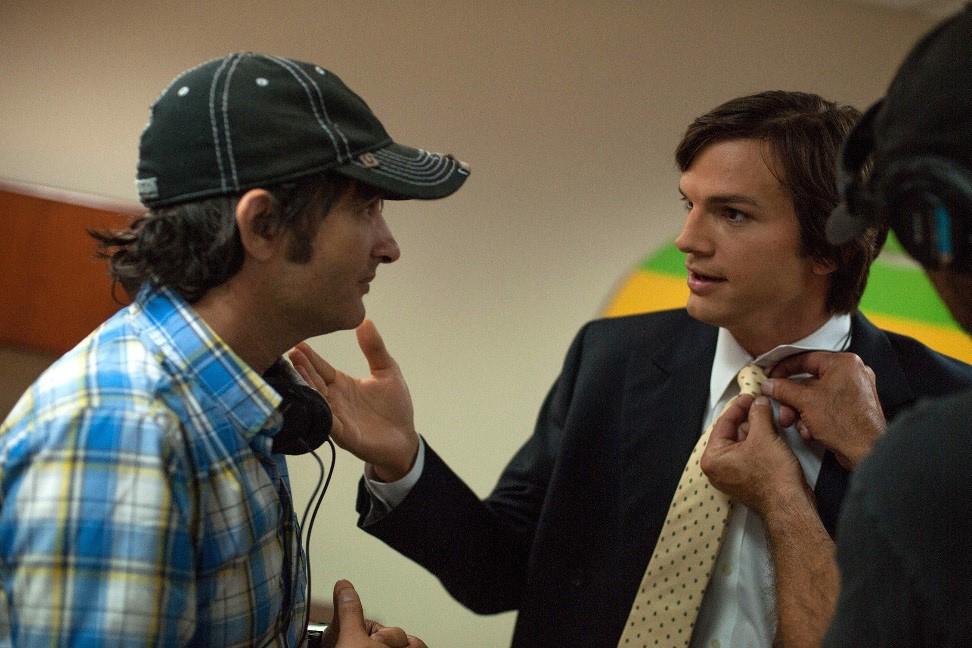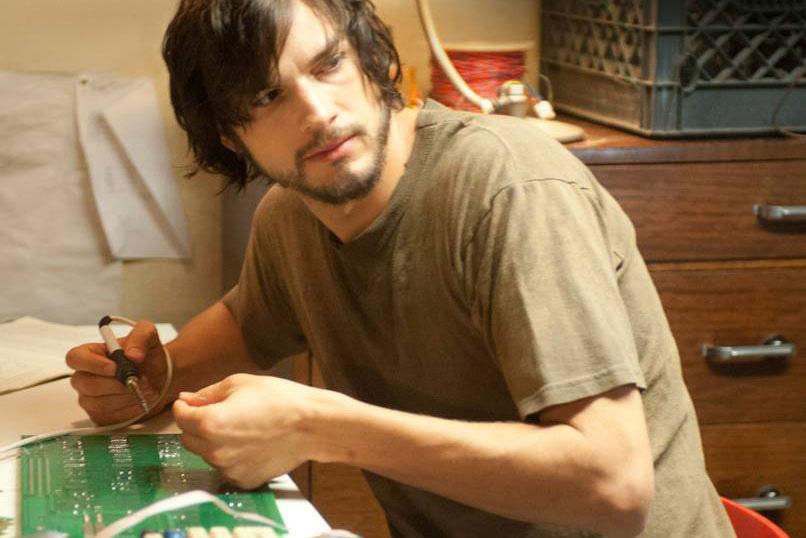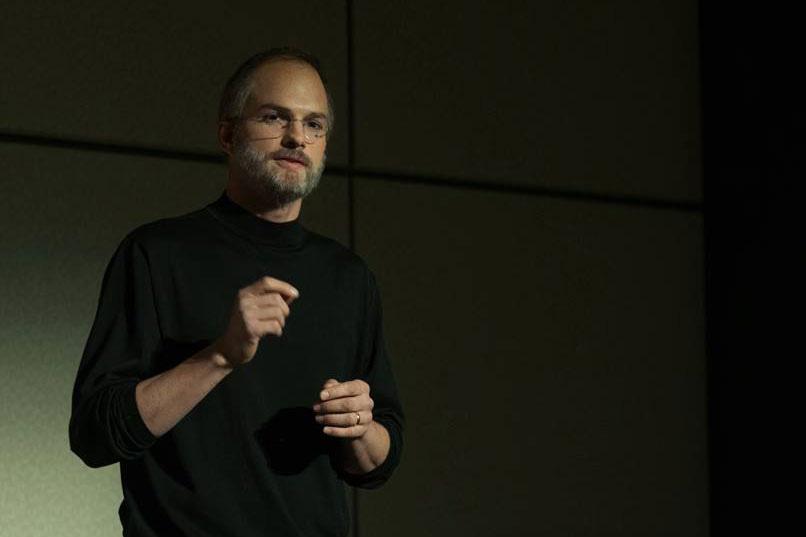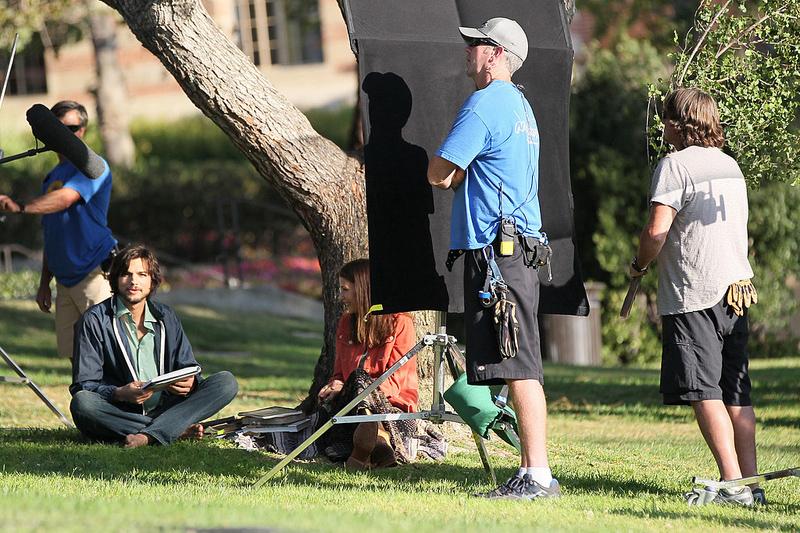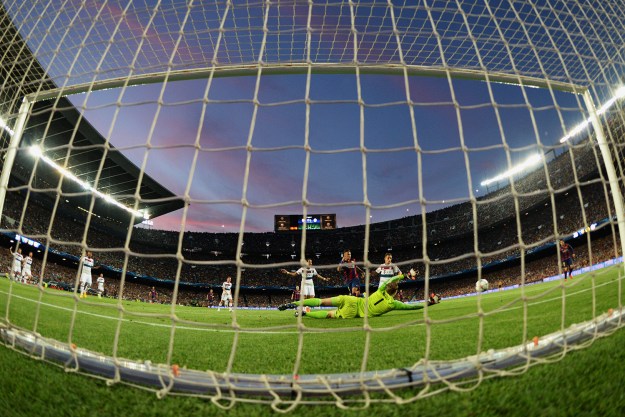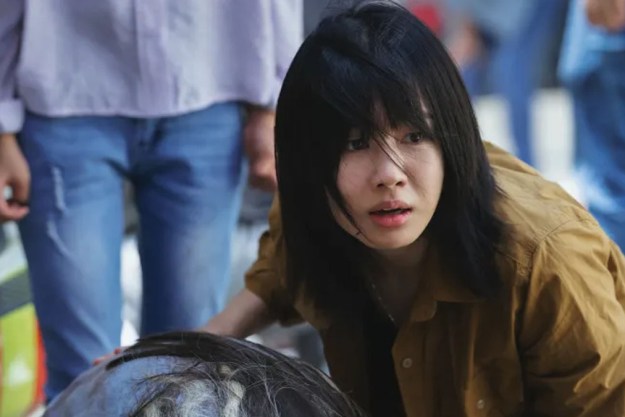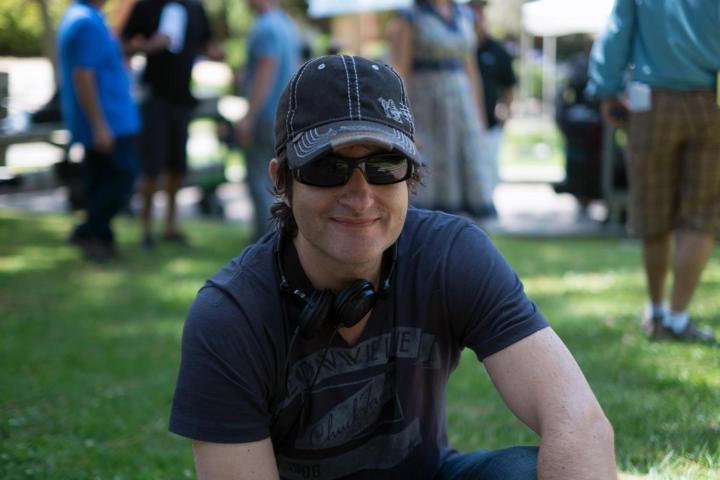
JOBS, the second of three Steve Jobs biopics that went into production last year (the first was Funny Or Die’s iSteve was the first), premieres this weekend, with the sorta unlikely – but surprisingly similar looking – Ashton Kutcher in the starring role. The film is the work of Joshua Michael Stern, best known for 2008’s Swing Vote, who was contacted by a Texas publishing magnate Mark Hulme. Hulme, inspired by the near ubiquitous lionization of Jobs upon his retirement from Apple in 2011, commissioned a script as the first project for a new production company. We caught up with Stern this week to talk about bringing an American legend to the screen.
You can read our review of JOBS here.
How did you transform the guy from Two and a Half Men into Steve Jobs?
Well, what’s been great is giving Ashton the platform to discuss what he’s passionate about, which is the tech world. He is intimately involved with it, he understands the personality, he understands the obsessiveness. Steve Jobs had that obsessiveness, starting with the personal computer.
Ashton understood the world, and he did research on the guy; he channeled Jobs’ mannerisms, the walk, and the way he spoke.

The young Steve Jobs was a salesman. He was told ‘No’ a lot, he went around trying to sell his ideas. He was charismatic, especially when he was young – scrappy and a little wild, but passionate and charismatic.
How did you decide which Jobs to portray on the screen?
I was shackled to the facts we know about him. He did deny the paternity of his child; he did not give stock options to certain people he maybe should have. He treated people the way he did. We try to put out there what we know about what the young Jobs went through – the frustrations, the way his personality morphs over time into someone who was battling a lot of forces to get what he wanted into the marketplace.
Was it a challenge to balance celebrating him as a visionary with who he was as a person?
Very early on the concern was – and even [Apple co-founder] Steve Wozniak said this – that we would be deifying him. It’s a very fine line because even before someone sees the movie they could say “Oh, they’re going to deify him and turn him into this mythical icon.”
He was difficult and is portrayed as a rough character [in this film], so it is different from what people perceived him to be. I think that the evidence [proves] that he was this character. He found his demons from within and was driven ultimately by what ended up being his passion: the computer.
I think the evidence [proves] that he was this character.
I think for a filmmaker doing a story about someone who lived so recently, the challenges were twofold. The main one was that the producer wanted me to stick to the structure of the script as we know it to have happened, and I wanted as a filmmaker to create fictional bridges – or layers of fiction. As much as I wanted to do that, I couldn’t.
Even in his personal life, we knew nothing [about] him and his wife. He was so private, excruciatingly private. His inner circle was small and the access was limited. I saw that as a challenge.
Was there anything you couldn’t put into the film?
A lot of people have their own issues invested in the story, so you can never satisfy everybody. For example, it’s known that he got a lot of the GUI [Apple’s original Graphical User Interface] from Xerox, or at least Xerox had this technology and they weren’t really doing anything with it. Steve saw it and he adopted the basics of it; there was a thought to put that into the movie, but we did not include it. I wanted to stay within the walls of Apple.
Going into production, what did you know about the specifics of early computing?
I did not have a background in computing, but everyone around me did, including Ashton. He had an almost encyclopedic knowledge. We would have a set in the garage we shot in, which was the house Steve Jobs grew up in, and Ashton would go in and see a computer processor and take it off the bed and explain to people that the piece would not have been developed for two more years.
At this stage, technology was a very un-sexy thing. It was very basic. Guys soldering with kits, burning processors into plastic and trying to see how they could advance it.
Did you use actual pieces of original computers or replicas when filming?
Some were replicas – we had a lot of visual references and there are a lot of holes in the history. [For example] when they brought [Rod] Holt to create a fan to cool down the board, what exactly did it look like in the prototype stage? We don’t know what every error that was discarded looked like in that period of time, or what Woz threw away, but for the most part we tried to stay in the realm of what was known at the time.
How involved was Apple?
They weren’t [involved] at all. They don’t have anything to gain by coming out for or against it. All of the original guys in the garage, with the exception of Woz, saw it and were moved by it. There are moments for some of them where they individually felt like “Oh my gosh, you brought him back,” so it was an interesting experience showing it to them.

I think the iPod was the big needle shift. The implication and thought of what the iPod was, it was the beginning, the kernel and the seed of everything that followed.
The iPod was a piece of hardware that replaced a whole industry, and not only replaced an industry, but redefined it.
What is your favorite gadget?
The iPhone. It connects to everything in my life and really does make everything easier. If I’m stuck somewhere, I could literally do almost anything [with it]. That is the ultimate device.
